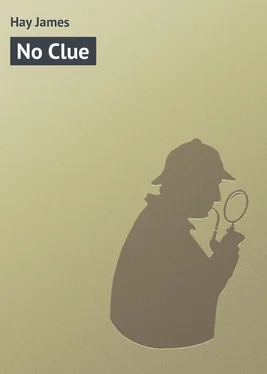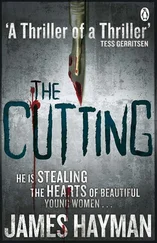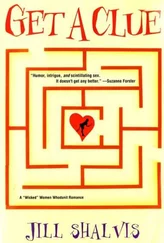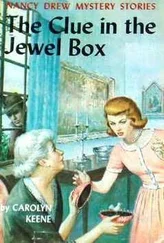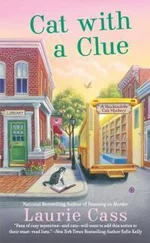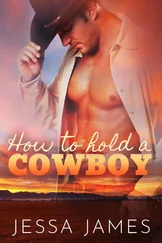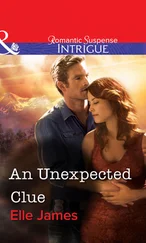James Hay - No Clue
Здесь есть возможность читать онлайн «James Hay - No Clue» — ознакомительный отрывок электронной книги совершенно бесплатно, а после прочтения отрывка купить полную версию. В некоторых случаях можно слушать аудио, скачать через торрент в формате fb2 и присутствует краткое содержание. Жанр: Классический детектив, foreign_detective, foreign_prose, foreign_language, на английском языке. Описание произведения, (предисловие) а так же отзывы посетителей доступны на портале библиотеки ЛибКат.
- Название:No Clue
- Автор:
- Жанр:
- Год:неизвестен
- ISBN:нет данных
- Рейтинг книги:3 / 5. Голосов: 1
-
Избранное:Добавить в избранное
- Отзывы:
-
Ваша оценка:
- 60
- 1
- 2
- 3
- 4
- 5
No Clue: краткое содержание, описание и аннотация
Предлагаем к чтению аннотацию, описание, краткое содержание или предисловие (зависит от того, что написал сам автор книги «No Clue»). Если вы не нашли необходимую информацию о книге — напишите в комментариях, мы постараемся отыскать её.
No Clue — читать онлайн ознакомительный отрывок
Ниже представлен текст книги, разбитый по страницам. Система сохранения места последней прочитанной страницы, позволяет с удобством читать онлайн бесплатно книгу «No Clue», без необходимости каждый раз заново искать на чём Вы остановились. Поставьте закладку, и сможете в любой момент перейти на страницу, на которой закончили чтение.
Интервал:
Закладка:
He felt the need of keen thought. He reached for his knife and piece of wood. Entirely unconsciously, he began to whittle, letting little shavings fall on the bare floor. She made no sign of seeing his new occupation.
"It's plain enough, Mr. – I don't recall your name."
"Hastings – Jefferson Hastings."
"It's plain and direct, Mr. Hastings. He threw her over, threw Mildred over. She refused to be dealt with in that way. He wouldn't listen to her side, her arguments, her protests, her pleas. She pursued him; and last night he killed her. I understand – Mr. Crown told me – he was found bending over the body – it seemed to me, caught in the very commission of the crime."
A fleeting contortion, like mirthless ridicule, touched her lips as she saw him, with head lowered, cut more savagely into the piece of wood. She noticed, and enjoyed, his dismay.
"That isn't quite accurate," he said, without lifting his head. "He and another man, Judge Wilton, stumbled – came upon your daughter's body at the same moment."
"Was that it?" she retorted, unbelieving.
When he looked up, she was regarding him thoughtfully, the black brows elevated, interrogative. The old man felt the stirrings of physical nausea within him. But he waited for her to elaborate her story.
"Do you care to ask anything more?" she inquired, impersonal as ashes.
"If I may."
"Why, certainly."
He paused in his whittling, brought forth a huge handkerchief, passed it across his forehead, was aware for a moment that he was working hard against the woman's unnatural calmness, and feeling the heat intensely. She was untouched by it. He whittled again, asking her:
"You a native of Washington?"
"No."
"How long have you been here?"
"About nine months. We came from Chicago."
"Any friends here – have you any friends here?"
"Neither here nor elsewhere." She made that bleak declaration simply, as if he had suggested her possession of green diamonds. Her tone made friendship a myth.
He felt again utterly free of the restraints and little hesitancies usual in situations of this nature.
"And your means, resources. Any, Mrs. Brace?"
"None – except my daughter's."
He was unaccountably restless. Putting the knife into his pocket, he stood up, went to the window. His guess had been correct. The courtyard below was as he had pictured it. He stood there at least a full minute.
Turning suddenly in the hope of catching some new expression on her face, he found her gazing steadily, as if in revery, at the opposite wall.
"One thing more, Mrs. Brace: did you know your daughter intended to go to Sloanehurst last night?"
"No."
"Were you uneasy when she failed to come in – last night?"
"Yes; but what could I do?"
"Had she written to Mr. Webster recently?"
"Yes; I think so."
"You think so?"
"Yes; she went out to mail a letter night before last. I recall that she said it was important, had to be in the box for the midnight collection, to reach its destination yesterday afternoon – late. I'm sure it was to Webster."
"Did you see the address on it?"
"I didn't try to."
He stepped from the window, to throw the full glare of the morning sky on her face, which was upturned, toward him.
"Was it in a grey envelope?"
"Yes; an oblong, grey envelope," she said, the impassive, unwrinkled face unmoved to either curiosity or reticence.
With surprising swiftness he took a triangular piece of paper from his breast pocket and held it before her.
"Might that be the flap of that grey envelope?"
She inspected it, while he kept hold of it.
"Very possibly."
Without leaving her chair, she turned and put back the lid of a rickety little desk in the corner immediately behind her. There, she showed him, was a bundle of grey envelopes, the corresponding paper beside it. He compared the envelope flaps with the one he had brought. They were identical.
Here was support of her assertion that Berne Webster had been pursued by her daughter as late as yesterday afternoon – and, therefore, might have been provoked into desperate action. He had found that scrap of grey paper at Sloanehurst, in Webster's room.
VI
ACTION BY THE SHERIFF
Mrs. Brace did not ask Hastings where he had got the fragment of grey envelope. She made no comment whatever.
He reversed the flap in his hand and showed her the inner side on which were, at first sight, meaningless lines and little smears. He explained that the letter must have been put into the envelope when the ink was still undried on the part of it that came in contact with the flap, and, the paper being of that rough-finish, spongy kind frequently affected by women, the flap had absorbed the undried ink pressed against it.
"Have you a hand-mirror?" he asked, breaking a long pause.
She brought one from the bedroom. Holding it before the envelope flap, he showed her the marks thus made legible. They were, on the first line: " – edly de – ," with the first loop or curve of an "n" or an "m" following the "de"; and on the second line the one word "Pursuit!" the whole reproduction being this:
"Does that writing mean anything to you, Mrs. Brace?" Hastings asked, keeping it in front of her.
She moved her left hand, a quiet gesture indicating her lack of further interest in the piece of paper.
"Nothing special," she said, "except that the top line seems to bear out what I've told you. It might be: 'repeatedly demanded' – I mean Mildred may have written that she had repeatedly demanded justice of him, something of that sort."
"Is it your daughter's writing?"
"Yes."
"And the word 'Pursuit,' with an exclamation point after it? That suggest anything to you?"
"Why, no." She showed her first curiosity: "Where did you get that piece of envelope?"
"Not from Berne Webster," he said, smiling.
"I suppose not," she agreed, and did not press him for the information.
"You said," he went to another point, "that the sheriff attached no importance to your belief in Webster's guilt. Can you tell me why?"
Her contempt was frank enough now, and visible, her lips thickening and assuming the abnormally humid appearance he had noticed before.
"He thinks the footsteps which Miss Sloane says she heard are the deciding evidence. He accuses a young man named Russell, Eugene Russell, who's been attentive to Mildred."
Hastings was relieved.
"Crown's seen him, seen Russell?" he asked, not troubling to conceal his eagerness.
On that, he saw the beginnings of wrath in her eyes. The black eyebrows went upward, the thin nostrils expanded, the lips set to a line no thicker than the edge of a knife.
"You, too, will – "
She broke off, checked by the ringing of the wall telephone in the entrance hall. She answered the call, moving without haste. It was for Mr. Hastings, she said, going back to her seat.
He regretted the interruption; it would give her time to regain the self-control she had been on the point of losing.
Sheriff Crown was at the other end of the wire. He was back at Sloanehurst, he explained, and Miss Sloane had asked him to give the detective certain information:
He had asked the Washington police to hold Eugene Russell, or to persuade him to attend the inquest at Sloanehurst. Crown, going in to Washington, had stopped at the car barns of the electric road which passed Sloanehurst, and had found a conductor who had made the ten-thirty run last night. This conductor, Barton, had slept at the barns, waiting for the early-morning resumption of car service to take him to his home across the city.
Barton remembered having seen a man leave his car at Ridgecrest, the next stop before Sloanehurst, at twenty-five minutes past ten last night. He answered Russell's description, had seemed greatly agitated, and was unfamiliar with the stops on the line, having questioned Barton as to the distance between Ridgecrest and Sloanehurst. That was all the conductor had to tell.
Читать дальшеИнтервал:
Закладка:
Похожие книги на «No Clue»
Представляем Вашему вниманию похожие книги на «No Clue» списком для выбора. Мы отобрали схожую по названию и смыслу литературу в надежде предоставить читателям больше вариантов отыскать новые, интересные, ещё непрочитанные произведения.
Обсуждение, отзывы о книге «No Clue» и просто собственные мнения читателей. Оставьте ваши комментарии, напишите, что Вы думаете о произведении, его смысле или главных героях. Укажите что конкретно понравилось, а что нет, и почему Вы так считаете.
